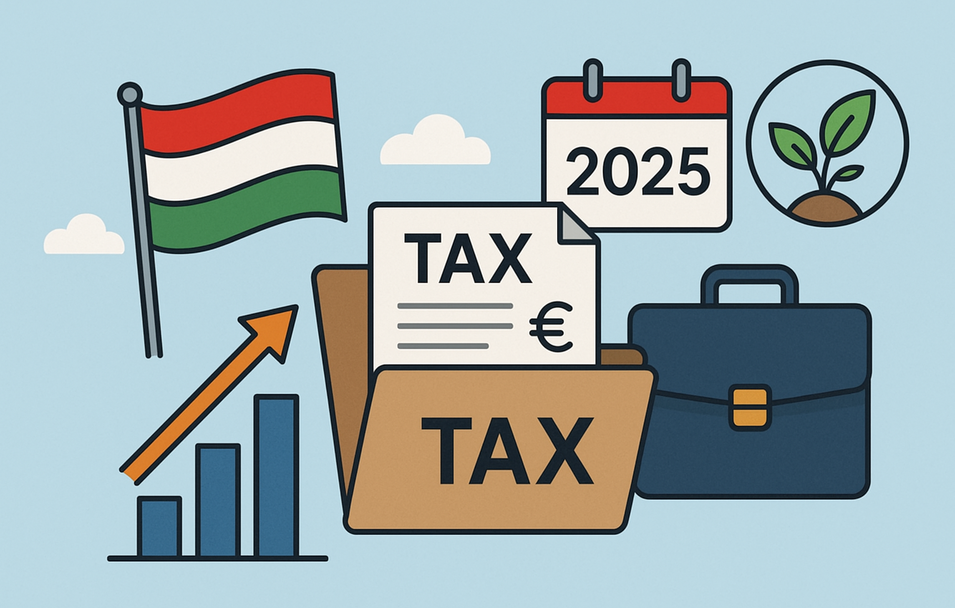
Starting January 1, 2025, significant tax changes will take effect in Hungary, impacting both domestic businesses and foreign companies operating in the Hungarian market. The reform covers multiple areas — from VAT and excise duties to income tax and new rules for online platforms.
1. Value Added Tax (VAT)VAT Exemption
Under updated EU rules, from 2025 the conditions for VAT exemption will change. A taxpayer registered in another EU country will be able to obtain VAT exemption in a state where it has no permanent establishment (e.g., Hungary), provided certain requirements are met. This simplifies operations for companies newly entering the Hungarian market. For local taxpayers, the existing threshold of 12 million HUF remains unchanged.
Reduced VAT Rate on Real Estate
The reduced 5% VAT rate on new real estate projects will remain in force for another two years — until December 31, 2026. Under certain conditions, it will continue to apply if the property transfer takes place by December 31, 2030.
2. Minimum Tax
Each company (or local unit) must calculate and declare an advance payment under this new tax.
The payment must be made by the 20th day of the 11th month of the tax year (almost at year’s end).
The first payment is due on November 20, 2025.
In practice, this rule requires businesses to prepay part of the tax so that the state receives revenue before the end of the tax year.
3. Excise Duty: Indexation
From 2025, excise rates on goods will increase. Rates on fuel (including gasoline and diesel) and various types of alcohol were published by December 15, 2024, and adjusted in line with the consumer price index.
From 2026, excise duties on all goods will automatically rise each year according to inflation.
Refunds of excise duty on diesel fuel used for commercial purposes will depend on the EUR/HUF exchange rate. Refunds will also be possible for electricity consumed in railway transit.
4. Environmental Levy: Reduced Bureaucracy
Previously, companies handling packaging, electrical equipment, tires, batteries, and even office paper had to register and file reports under the environmental levy system. These obligations are now removed, reducing the administrative burden.
However, obligations under the EPR (Extended Producer Responsibility) system remain — companies must still report on waste disposal and recycling.
5. Retail Tax: Now Also for Online Platforms
From 2025, the retail tax will also apply to operators of online platforms (both Hungarian and foreign) that provide marketplaces for sellers (the so-called TEMU tax). The tax base will consist of the total net income from third-party sellers operating through the platform. If the platform itself engages in retail trade, its turnover will also be included in the tax base.
6. Tax Discipline: Stricter Control
From 2025, tax authorities will introduce a new procedure whereby taxpayers may be required to explain and correct errors or discrepancies in their reports within 15 days of notification. Failure to comply will result in fines, which will increase with further delay.
7. eParagon: Postponed Launch
The introduction of the electronic receipt system (eParagon), initially scheduled for January 2025, has been postponed by six months. This gives businesses additional time for technical preparation.
Monitoring of Institutional Changes in the CEE: Report for Investors
Аnalytical research
Post-war Reconstruction of Ukraine: Expectations, Plans, and Strategies of International Partners
Аnalytical research
Industry Development Trends and Forecast in CEE: Research Report
Аnalytical research